Tourists who want to give back to a destination that has given them memorable experiences, will find no shortage of opportunity to do so in Africa. Michelle Coleman and Kim Emmanuel round up some of the options.
Ulusaba Private Game Reserve empowers communities
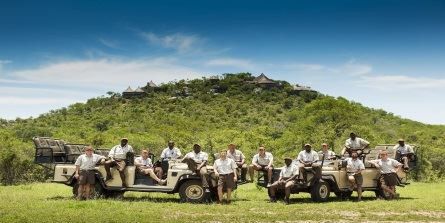
Pride n’ Purpose is the charitable arm of Ulusaba Private Game Reserve, committed to helping disadvantaged communities living adjacent to the Sabi Sand Reserve on the border of the Kruger National Park. All the charity’s running expenses are covered by Virgin Limited Edition and Virgin Unite. 100% of donations go directly towards much-needed projects and it is estimated that Pride ‘n Purpose benefits over 35 000 people across six communities. The Pride ‘n Purpose philosophy is that people are most effectively helped if they are empowered to help themselves, thus the emphasis is on sustainable development initiatives.
Every September, Arbor Month is marked with a number of fun projects. Ulusaba guests are encouraged to make donations and assist in the planting of fruit trees in the local village of Dumphries as part of a community tour. The reserve keeps guests updated with the progress of the trees long after they have returned home.
Rocktail Camp’s turtle drives
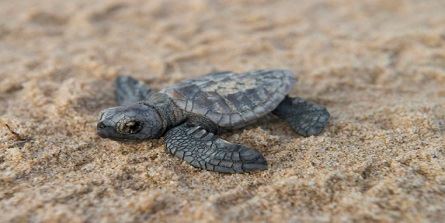
Rocktail camp also offers turtle drives during October and March each year, where guests may be lucky enough to view turtle hatchlings on a night drive.
Guests are led by a Wilderness Safari guide along Rocktail’s 30 kilometres of beach. Natalie Gouws, from Rocktail Camp, suggests the best time to experience the turtle drive is between December and February. Once the guide spots the turtles, they are measured for record keeping. Both the loggerhead and leatherback turtles can be found on the northern KwaZulu Natal coastline.
“We are also really looking forward to hosting Dr George Hughes at Rocktail next year to give our guests the unique opportunity to tap into his expert knowledge on turtle conservation,” said Patrick Boddam-Whetham, Rocktail MD. Dr George Hughes will be at Rocktail Camp from January 22-24, 2017, and will be giving three presentations during his stay; one of them will focus on the Maputaland Turtle Programme, ‘Reversing the Trend – 50 years of conservation success’.
Other activities at Rocktail include swimming, snorkelling at Lala Nek, and guided and unguided forest walks, scorpion night walks and birding in the Maputaland Coastal Forest.
Gondwana Game Reserve’s research contributes to future management
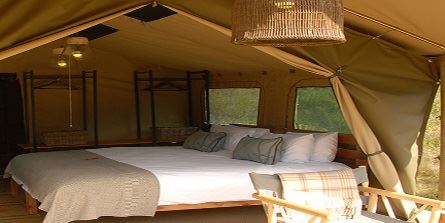
Gondwana Game Reserve, an 11 000-hectare private Big 5 reserve on the Garden Route offers a five-night conservation experience at its Tented Eco Camp for those who want more engagement on safari.
Participants get involved in wildlife and veld management, learn important bush skills and interpretation, and volunteer in the local community. The research and findings from the programme are fed back to Gondwana’s conservation department to assist in decisions made on reserve management.
Some of the activities visitors might find themselves participating in are photographic surveys of the Cape leopard, animal translocation and veterinary care, and erosion control.
The programme runs from Mondays to Saturdays year around, and can be shortened to three nights. When young children are involved, some of the wildlife monitoring and research activities are substituted with fishing, treasure hunts and nature crafts. Children must be over the age of six.
Tourvest’s ‘green seats’ support conservation
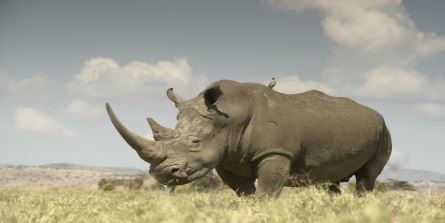
Tourvest DM, Your Africa, offers all guests the option to buy into a series of social responsibility programmes.
According to Suzanne Benadie, Sales and Marketing Director, contributions are invested in planting trees, rhino conservation, a National Parks ranger programme or Yithuba Lami, a project rescuing young boys from the streets, reintroducing them to schooling and reconnecting them to their families, where possible.
Another company in the Tourvest DM stable, Welcome Tourism Services, produces a brochure of specific interest to experiential travellers. In a section titled ‘Making a Difference’ it highlights social responsibility activities.
Along with all companies in the Tourvest DM group, clients participating in a Welcome Tourism Services tour have the option of purchasing a ‘green seat’, paying a donation over and above their tour price, with the proceeds going towards the fight against rhino poaching and a project called Trees for Tourism.
Eastern Cape game reserves go hand-in-hand with upliftment
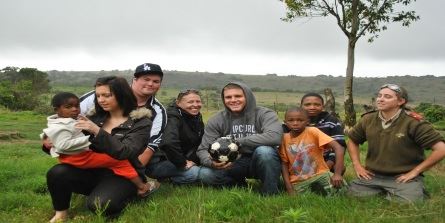
Vernon Wait, Marketing Director of Lalibela Game Reserve in the Eastern Cape, says: “It has long been my opinion that those people visiting Africa are more likely to want to immerse themselves in what Africa has to offer than those who choose to go to mass-market tourism destinations.”
Wait says travellers form the US in particular are “determined to roll their sleeves up and ensure that their travels make a difference to the communities in the destinations that they visit.”
The Eastern Cape game lodge industry, he feels, is a great example of how tourism gives back, and tourists, just by choosing the destination, contribute to the upliftment of the locale and its community.
“Previously, pretty much all the land that now makes up the game lodge industry in this area was used for farming sheep, cattle and goats,” he says. “Since the private game reserves have come about, most of the focus has been on the reintroduction of indigenous game and how positive this has been.
“Far less emphasis has been placed on the job creation that has taken place in these rural areas but, also, every private game reserve in the Eastern Cape has meaningful social upliftment programmes under way that are making a positive difference to people’s lives. Guests at these game reserves are able to see and experience what is being done and it is easy for them to conclude that their stay has had a sustainable, positive impact on people’s lives.”
Mount Camdeboo volunteers exposed to new skills
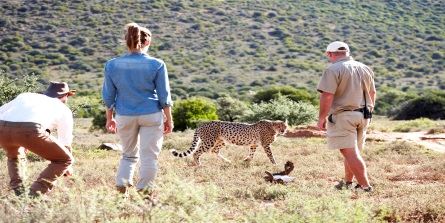
Volunteers are motivated for a variety of reasons, says Saskia Brown, Sales and Marketing Manager for Mount Camdeboo Private Game Reserve in the Eastern Cape, where the Mount Camdeboo Conservation Experience is in force.
Some are researchers working on their thesis or students on a gap year. They may be looking for work experience, a career change, or just fulfilling a dream to visit Africa. “The unifying theme among them is an interest in using their time, skills and money to give back and make a positive impact,” she says.
The reserve’s volunteer programme will see the visitor engaged in animal tracking and research, reserve management, botanical rehabilitation and community outreach. Volunteers work Mondays- Fridays from 06h30-17h00, but there’s no such thing as a typical day and tasks are tailored to priorities on the reserve. The weekends are free to chill in camp or explore the area.
Rhino conservation at Kwandwe Private Game Reserve
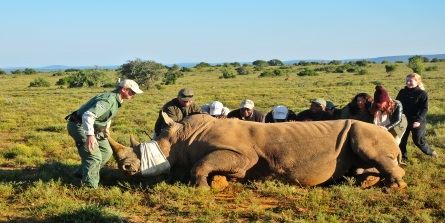
Guests at Kwandwe Private Game Reserve can do their bit for the preservation of the endangered rhino by participating in a not-for-profit Rhino Conservation Safari.
According to Sales and Marketing Manager, Saskia Brown, the programme provides an insight into Kwandwe’s Black and White rhino populations with their differing behavioural patterns, along with the growing problem of rhino poaching and the necessary monitoring, prevention and reaction measures. Working alongside the vet, wildlife manager and rangers, guests are able to assist with the tasks of darting, notching and DNA sampling of the animals, she says.
The price for participation next year is pegged at R35 000 excluding accommodation. Full proceeds go into rhino conservation.
“Kwandwe also strives to celebrate important wildlife and conservation dates throughout the year, such as World Rhino Day, Earth Hour and World Responsible Tourism Day,” says Brown. “On these occasions, guests are encouraged to become involved directly through various activities, from simply switching off all the electricity in their rooms for a few hours, to helping plant spekboom in previously degraded areas of the reserve.”
Guests also have the opportunity to participate in volunteering through the Ubunye Foundation, a charitable trust that invests in the development of 11 rural communities, two of them within the Kwandwe reserve. Guests can make donations of educational items and equipment, and financial contributions. They can also get involved in gardening, maintenance and training.
The reserve has also extended active involvement to families through a new range of ‘Eco-nect’ activities, including kite building, pellet gun target shooting, scavenger hunts and treasure hunts out on the reserve.
Township tourism in Durban sustains local residents
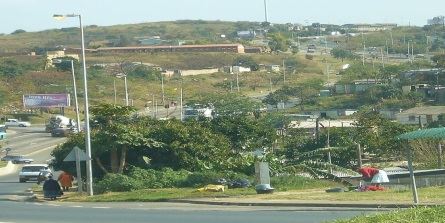
Developing township tourism has two goals, says Mayasree Moodley, PRO for Durban Tourism “to preserve our rich heritage and to promote sustainable growth for local residents.”
“The Woza eNanda Heritage Route – Inanda, to the north west, has a wealth of cultural and historic assets and is the most established of the local township tourism routes,” she says. “Umlazi, to the south west, is the most cosmopolitan of KZN's townships, where it's all about lifestyle. Clermont, to the west, has had the least capital investment and is some way behind the other two. However, it has its own charm, with a new sports stadium, and some excellent pubs and local restaurants, ideal for sampling township food and hospitality.”
‘All things shark’
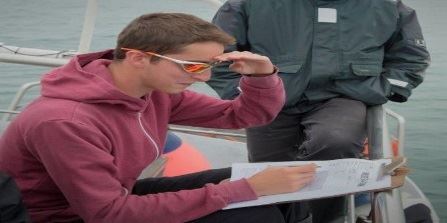
White Shark Projects offers a volunteer programme to those seeking adventure, and an education on “all things shark”, says Marketing Manager, Charmaine Beukes. The priority objective of volunteering is to assist in the collection of valuable data on the Great White shark.
The adventure operator also runs community projects and awareness campaigns that volunteers can engage in too. “Our Recycle Swop Shop in particular is a popular part of the programme, where our volunteers interact with the children in the local community.”
About 15km from Gansbaai, a centre for shark cage diving, is a new eating experience called Blinkwater, where the local fishing community have pooled resources and opened a restaurant. “This is a great experience, as you give back by supporting a community, and you get a real insight as to what life as a fisherman is like,” says Beukes.
Michelle Coleman and Kim Emmanuel























